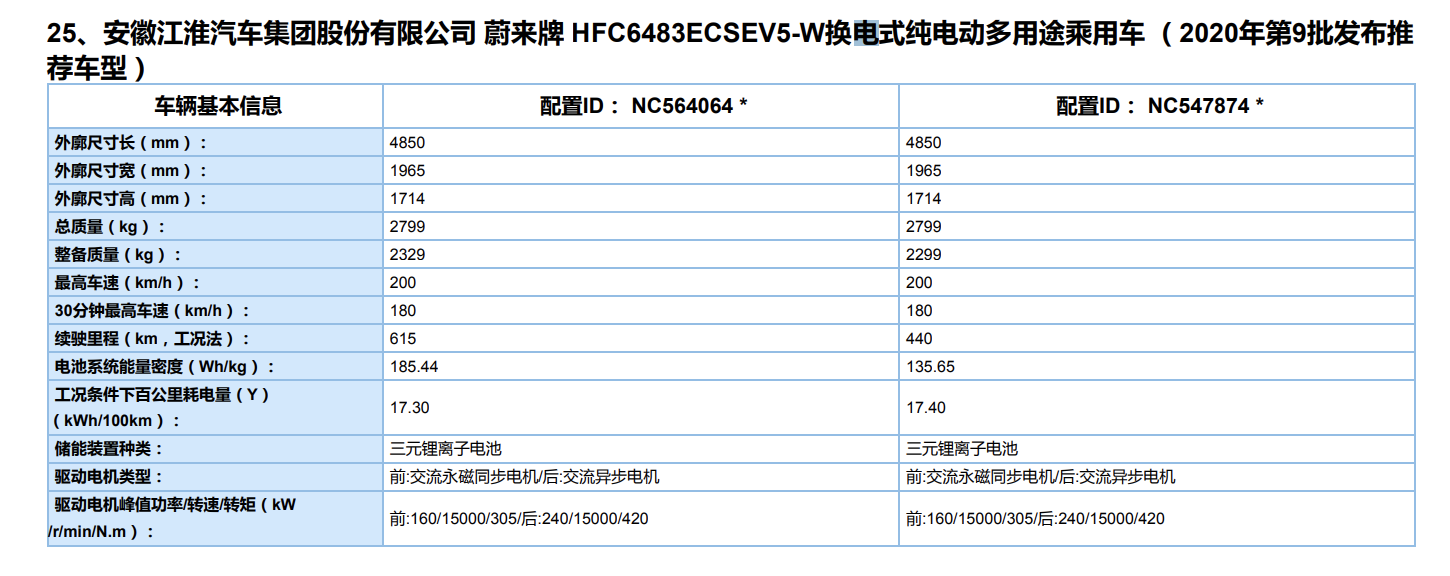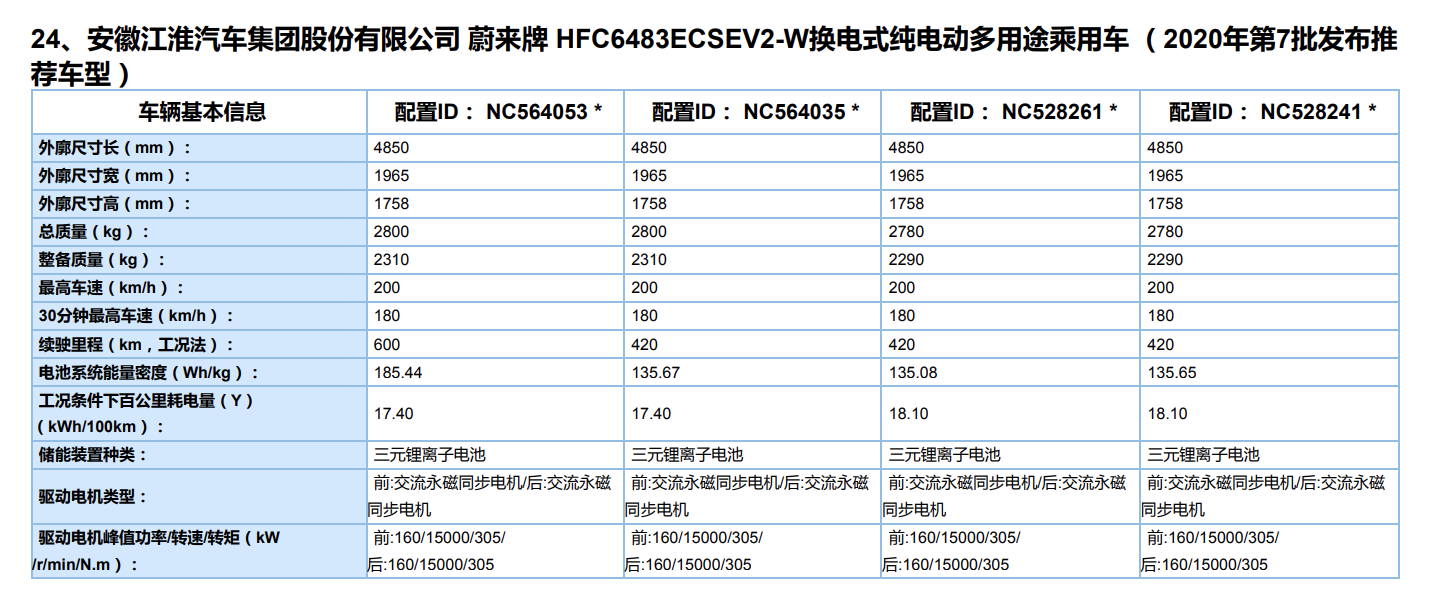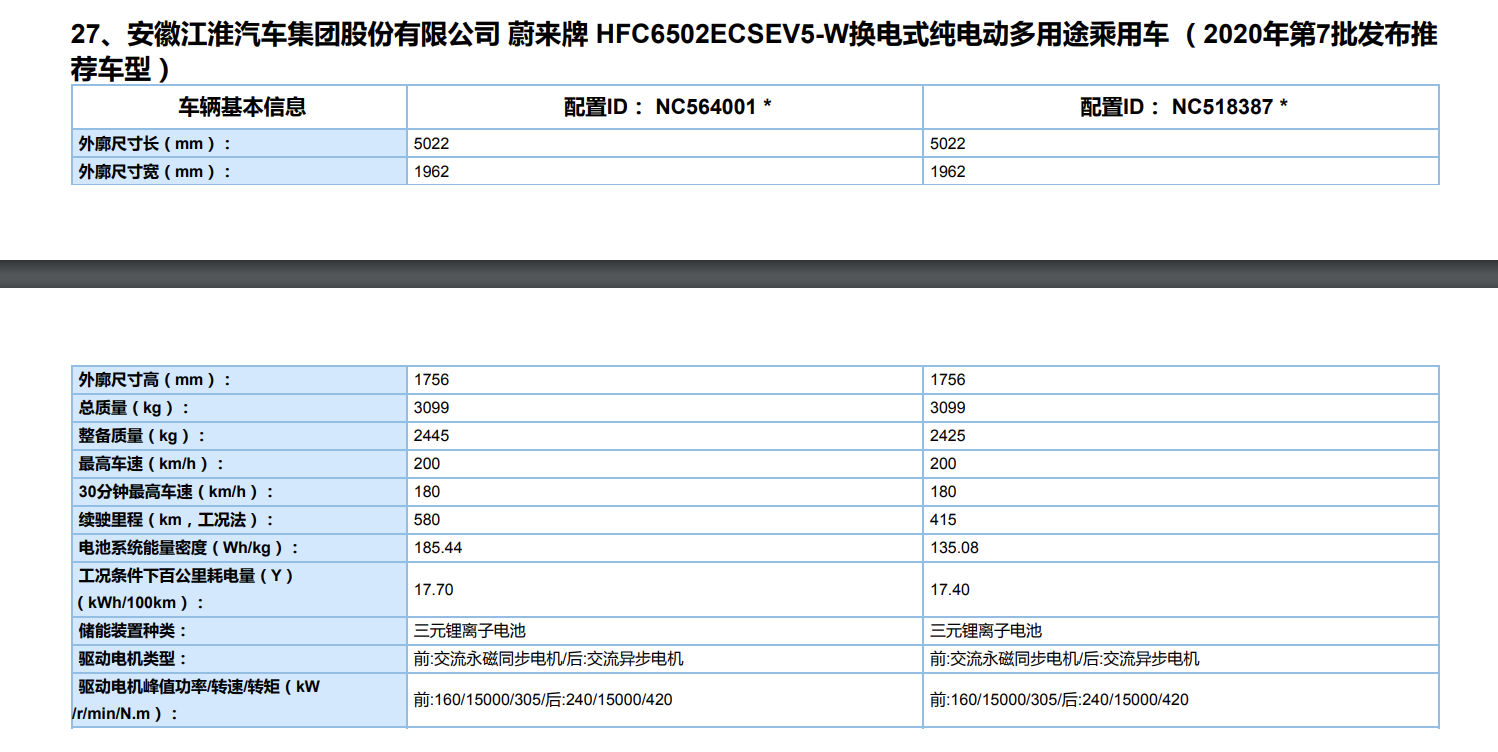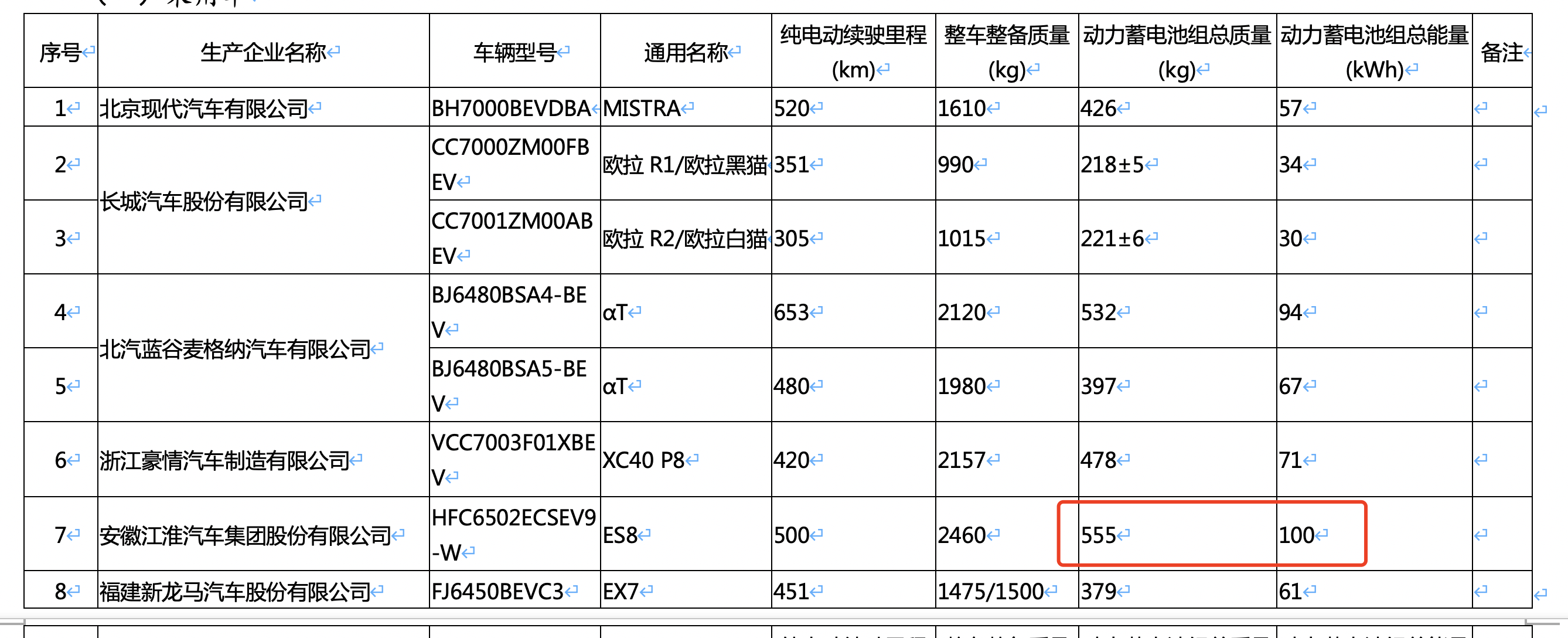The ES6, EC6, and ES8 equipped with a 100 kWh battery have been added to the Ministry of Industry and Information Technology’s new energy vehicle promotion directory.
After replacing the battery with a 100 kWh one, the NEDC ranges of ES6, EC6, and ES8 have increased to 610 km, 615 km, and 580 km (compared to ES8’s previous range of 500 km).




All three vehicle models feature the same energy density of 185.44 Wh/kg for their 100 kWh battery, while the 70 kWh battery has an energy density of 135.65 Wh/kg.
It was previously rumored that the 100 kWh battery used Contemporary Amperex Technology’s (CATL) CTP technology with a cell formula of 523. However, now that the data is out, the energy density of the 523 formula is only 180 Wh/kg, which is similar to the Geely Geometry C and SAIC Roewe ER6+ that use 70 kWh batteries with the same formula.
The improvement in energy density is likely due to an increase in volume density.
Thanks to the higher energy density, the curb weight of the 100 kWh battery-equipped models is only 30 kg heavier than that of the models with a 70 kWh battery (with the exception of ES6 and ES8, which are only 20 kg heavier).
The minor weight change brings two benefits:
On the one hand, the heavy battery does not significantly increase the weight of the vehicle, which would cause higher energy consumption. Thus, the actual range with a 100 kWh battery can be easily calculated based on previous energy consumption data.
On the other hand, the minor weight change will not have a significant impact on the suspension tuning, and it will not feel like replacing the entire vehicle after changing the battery.
Now that the 100 kWh battery is available, the 811 formula’s 84 kWh battery seems less appealing as its range does not improve significantly, and its price is not much cheaper. Having an additional type of battery only adds to the burden of battery swap stations.
Therefore, the 84 kWh battery may become a thing of the past, while more technical details about the 100 kWh battery and relevant Battery-as-a-Service (BaaS) policies are expected to be announced at NIO’s press conference this afternoon.
This article is a translation by ChatGPT of a Chinese report from 42HOW. If you have any questions about it, please email bd@42how.com.
